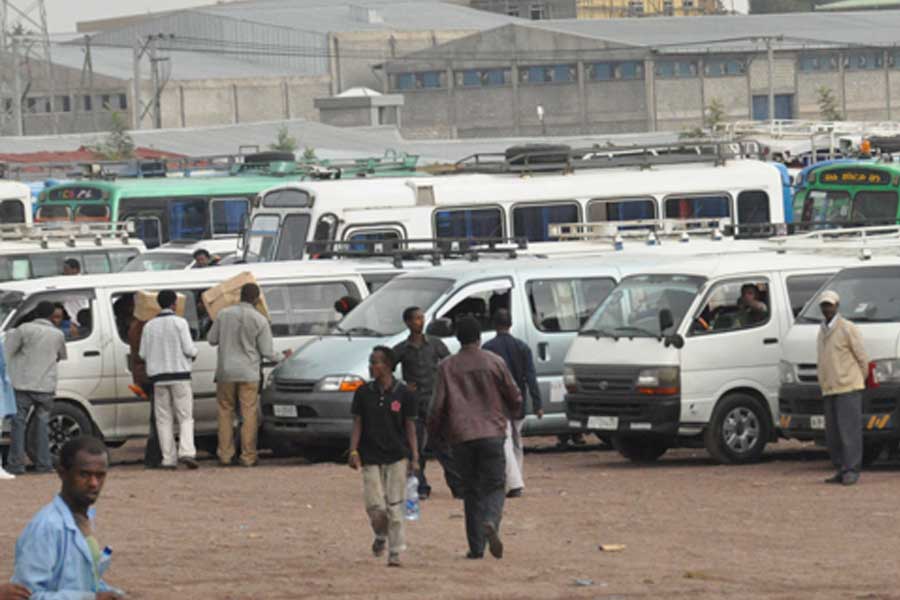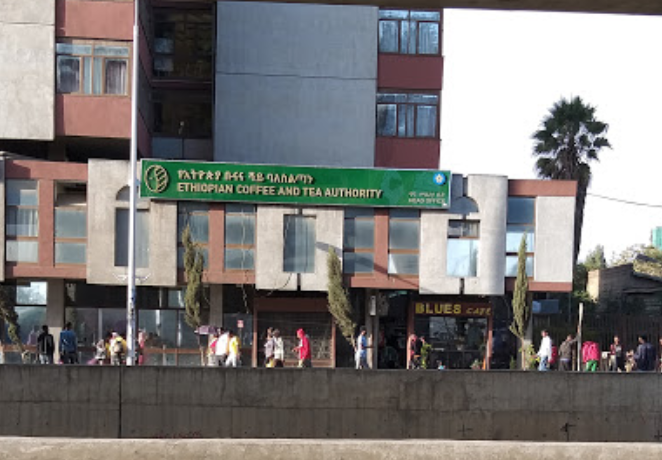
Radar | Apr 10,2021
Based on the quality of their services, transportation service providers will get star ratings, according to a new directive drafted by the Federal Transport Authority (FTA). Categorising the transporters by one through five stars, the new quality certification system will assign levels of competency to transport operators based on the standards defined in the directive.
At the federal level, transport operators will be categorised using the system, with five stars being the highest and one star being the lowest rating. In regional states, however, the FTA will use a two-star rating system with two stars denoting the highest level of competency. The rating has three categories, namely associations, transport companies and private operators. There are 164,308 buses across the country, of which 1,787 of them offer cross-border transport services.
Expected to begin in a half-year period, the system requires the commercial public transport operators to apply for a star-rating by submitting a business license. Transporters who cross two or more regional states as well as transboundary transporters organised in an association, whether corporate or private, are required to obtain their qualification certificate from the Authority, which spent one year preparing the directive.
All transportation service enterprises are required to hire a general manager with at least six years of experience and a first degree in a transport-related field in addition to five additional staff. The new rating will replace the existing law that categorises transport operators into three levels with a special qualification certificate and mandates a maximum of 20 years of life service for all vehicles.
Small or medium-sized operators that do not engage in transboundary transport will be able to receive their rating from their respective transport authorities at regional states.
If approved, the directive will require all vehicles to be equipped with GPS and a speed limiter. It also stipulates that all vehicles must be fitted with seatbelts for passengers. Operators will be obliged to have at least a one-year contract of legal service to receive maintenance services. The draft will also increase the mileage limit for smaller public transport vehicles to 250Km from the 150Km currently being enforced.
Associations looking to secure the four-star rating need to have a fleet of 100 to 300 vehicles. The service life of all vehicles is not to exceed 12 years, and each vehicle should have 45 seats or more. Additionally, vehicles are required to offer Wi-Fi, televisions, DVD players and a refrigerator for passengers.
Three-star associations should operate a fleet of 75 to 275 vehicles with the service life of each vehicle not exceeding 25 years. Each vehicle is expected to provide the amenities mentioned in the four-star category.
Two-star public transport associations must have 60 to 350 working vehicles, each with a service life of fewer than 12 years. The lowest star rating mandates 12 to 25 years of service life for 80 to 450 vehicles. For both one and two-star ratings, the vehicles are required to have 14 to 44 seats.
Transport companies that want to secure a five-star rating are expected to utilise vehicles whose life service is no greater than seven years. Similarly, 12 years of life service is the upper limit for a four-star rating and 20 years for a three-star rating. All three categories demand a fleet of 10 or more vehicles with at least 45 seats apiece.
The two-star rating can be attained with 10 or more vehicles, each with under 12 years of service life and 14 to 45 seats. The lowest rating for corporations requires 15 or more vehicles, each with 14 to 44 seats and a maximum of 20 years of service life.
The rating was not developed independently but was in line with deployment and has been in place for the past eight years, according to Yigzaw Dagnew, communications head at the Authority, which registered a total of 1.2 million vehicles as of last June, of which over half of them are in the capital.
"The existing law has become obsolete and unfit for the current context, which is why the authority drafted the new directive," said Yigzaw.
The separation of the rating and deployment is good, but building strong institutions to execute the laws and improve the sector is crucial, according to Thomas Melese, an urban transport expert at Stride Consulting Engineers Plc. Thomas also recommends that urban transport institutions work on research and improving the skills of their personnel.
"The country had been focusing mainly on road construction and not on urban transport," says the expert. "The government should work toward consolidating effective executives and collaborating with non-governmental stakeholders."
PUBLISHED ON
Oct 24,2020 [ VOL
21 , NO
1069]

Radar | Apr 10,2021

Fortune News | Oct 17,2020

Fortune News | Dec 10,2018

Fortune News | Jul 10,2020

Fortune News | Mar 07,2020

Dec 22 , 2024 . By TIZITA SHEWAFERAW
Charged with transforming colossal state-owned enterprises into modern and competitiv...

Aug 18 , 2024 . By AKSAH ITALO
Although predictable Yonas Zerihun's job in the ride-hailing service is not immune to...

Jul 28 , 2024 . By TIZITA SHEWAFERAW
Unhabitual, perhaps too many, Samuel Gebreyohannes, 38, used to occasionally enjoy a couple of beers at breakfast. However, he recently swit...

Jul 13 , 2024 . By AKSAH ITALO
Investors who rely on tractors, trucks, and field vehicles for commuting, transporting commodities, and f...

Oct 18 , 2025
The political establishment, notably the ruling party and its top brass, has become p...

Oct 11 , 2025
Ladislas Farago, a roving Associated Press (AP) correspondent, arrived in Ethiopia in...

Oct 4 , 2025
Eyob Tekalegn (PhD) had been in the Governor's chair for only weeks when, on Septembe...

Sep 27 , 2025
Four years into an experiment with “shock therapy” in education, the national moo...